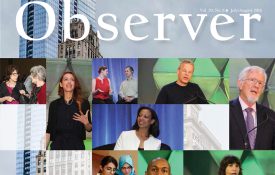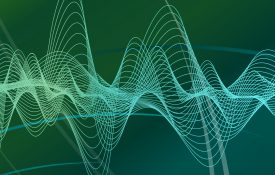-
Babies’ Spatial Reasoning Predicts Later Math Skills
Spatial reasoning measured in infancy predicts how children do at math at four years of age, according to findings from a longitudinal study published in Psychological Science, a journal of the Association for Psychological Science. Visit Page
-

How Rats, Bats, Bees, and People Navigate Their Worlds
Nearly 70 years ago, psychological scientist Edward Tolman introduced the idea that humans and other animals have a “cognitive map” that allows them to navigate their everyday spatial environments. Evidence of physical processes underpinning cognitive Visit Page
-
Sizing Up Magnitude
From fitness trackers that monitor our heart rates and daily steps to the number of “likes” on our latest social media update, the world is becoming an increasingly quantified place. Though we may not be Visit Page
-
Scientists Explore the Brain’s Navigational Capacity
Participants in the 2016 Presidential Symposium hosted by APS President C. Randy Gallistel included Nobel Laureate Edvard Moser of Kavli Institute for Systems Neuroscience and Norwegian University of Science and Technology, pioneering cognitive psychologist Barbara Tversky Visit Page
-
Psychological Scientists Honored by the National Academy of Medicine
Three psychological scientists — APS Fellow Valerie F. Reyna, and Nobel laureates Edvard I. Moser and May-Britt Moser — are among 80 new members just elected to the National Academy of Medicine. Membership in the Visit Page
-

Using Sound to Get Around
The sight of a blind person snapping her fingers, making clicking sounds with her tongue, or stomping her feet might draw stares on a street or in a subway station, but it’s this type of behavior that is opening up a vibrant new area of research in psychology. Visit Page

